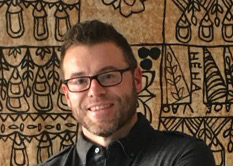
“Growing up in a working-class community, I often had doubts about what appeared on the surface of things. Those doubts came from many directions, including my own sense that I was different from others.
As a teenager, I found commonality through friendships and conversations with women and people of color, friendships that offered critical insights into experiences of difference, discrimination and resilience. As a college student, I would come to realize that my sense of difference as a young person was due, in part, to being gay and always feeling a bit out of place. As I left college and committed to a teaching position in a rural, underserved African-American community of North Carolina, I further embraced my youthful awareness that things were ‘not as they appeared on the surface.’ As a special educator and community advocate, I began to work alongside others to confront racism, poverty, inequality, and class oppression from many directions: within communities, within organizations, within our economies, within our families, and throughout our society. I have since committed my life journey to advancing social change that allows people to flourish and experience a sense of creative freedom.”
Michael has led strategy development and organizational change efforts throughout his career. He has worked with nonprofits of all sizes. While at Groundspark, a small social justice organization that used documentary filmmaking and strategic education campaigns to ignite social change, he served as National Program Director. Michael oversaw the expansion of the Respect for All Project, which focused on reducing bias and prejudice within schools, government agencies and community-based organizations. He also served as Co-Executive Director for California Institute for Rural Studies, a small nonprofit research group working to address rural poverty and promote a healthy agriculture. Larger organizations have included, Hathaway-Sycamores Children’s Services in Los Angeles, where he launched an innovative community-based mental health program, and California Rural Legal Assistance, where he served as director of Community Programs and Development for six years. At this time, he makes his contributions to social change through research, professional writing and nonprofit consulting.
Michael founded Open Mind to guide and support organizations to become equitable, stable and dynamic places that help foster longstanding change within communities and across our larger society. He has deep experience with organizational development, change management, data utilization, strategic planning, supervision practices and reflective leadership. His current research and consulting interests include: developing effective shared leadership and decision-making systems within organizations, capacity building throughout an organization, rural community change, managing cross-generational workplace dynamics, universal basic incomes, organizational learning and strategy development within the social sector. Michael also conducts research projects and helps design grantmaking initiatives for philanthropic clients focused on confronting inequality and inequity within an array of fields: arts, environment, human services, community development, education, and youth engagement among others. He is proficient in Spanish and has worked in cross-cultural settings within the US and Central America.
Michael holds a master’s degree in international and area studies, as well as an MSW in management, planning and policy from the University of California, Berkeley, and has conducted extensive research related to social change and nonprofit leadership.
He lives in Sonoma, California with his partner Jorge, a Family Nurse Practitioner.
